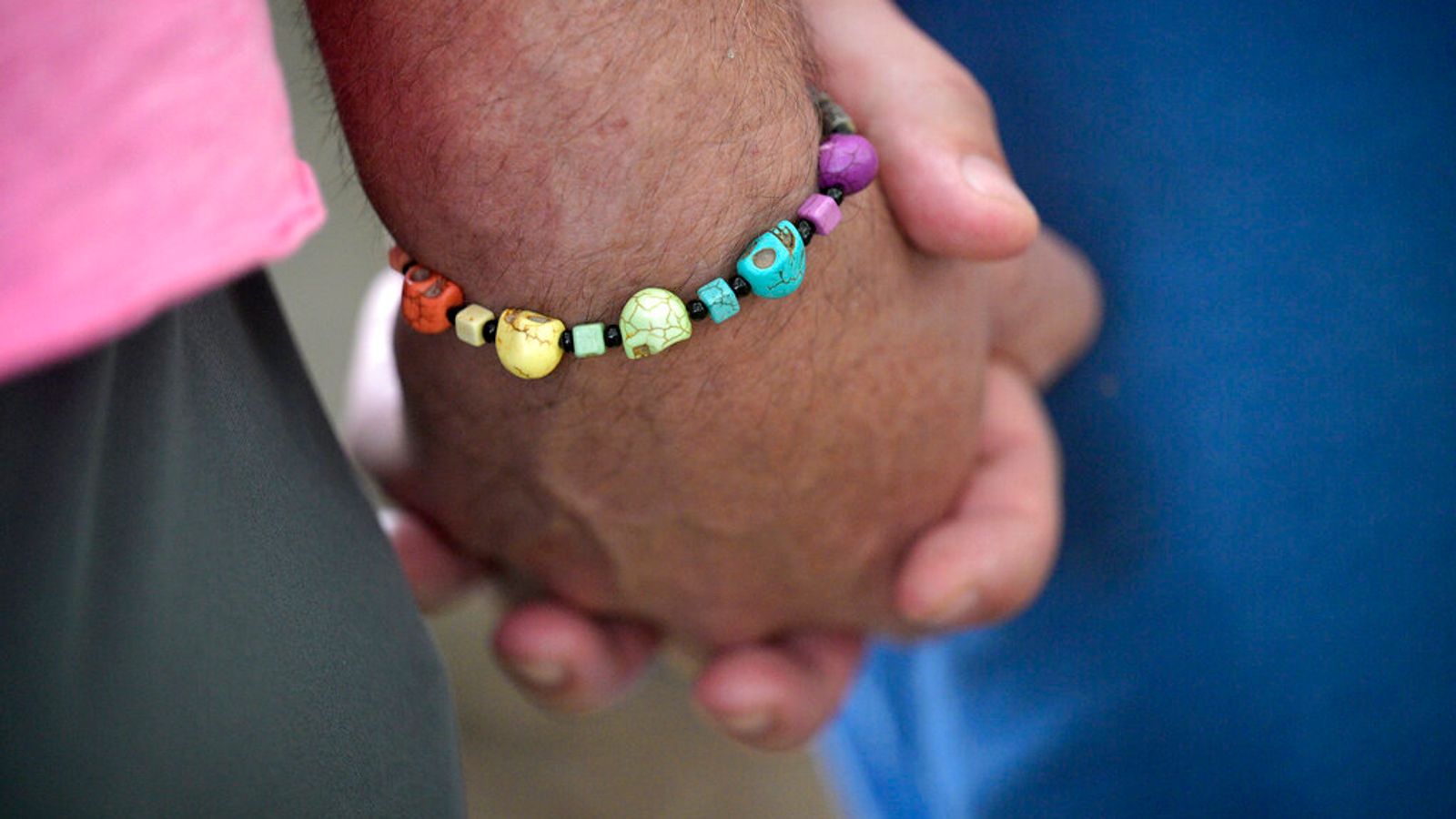The World Health Organisation (WHO) is advising gay men to limit their number of sexual partners in an effort to slow the spread of monkeypox.
Worldwide, there have been more than 18,800 cases of the disease which has claimed the lives of five people.
About 10% of cases are admitted to hospital to manage the pain caused by the disease and the WHO has declared the outbreak a global health emergency.
From 1 August the US Centers for Disease Control and Prevention (CDC) will make it a “nationally notifiable condition” in America.
In a briefing, WHO Director General Tedros Adhanom Ghebreyesus said he believes the spread can be stopped but only if “countries, communities and individuals inform themselves, take the risks seriously, and take the steps needed to stop transmission and protect vulnerable groups”.
This, he said, included for men who have sex with men “for the moment, reducing your number of sexual partners, reconsidering sex with new partners, and exchanging contact details with any new partners to enable follow-up if needed”.
Monkeypox is not considered a sexually transmitted disease, but many people who have contracted it have had some level of sexual activity.
Monkeypox declared global health emergency by World Health Organisation, as risk in Europe described as ‘high’
New monkeypox symptoms identified as researchers say it can be spread through ‘any close physical contact’
NHS scaling up monkeypox vaccination programme in London as more than 2,000 cases confirmed across UK
The virus spreads primarily though skin-on-skin physical contact, but it can also be transmitted by sharing bedlinen or towels that may have been used by somebody with monkeypox, as well as through close interactions like kissing.
Read more:
How do you catch it, what are the symptoms, and how easily does it spread?
Dr Tedros said: “The focus for all countries must be engaging and empowering communities of men who have sex with men to reduce the risk of infection and onward transmission, to provide care for those infected, and to safeguard human rights and dignity.
“Stigma and discrimination can be as dangerous as any virus, and can fuel the outbreak.”
Although 98% of cases so far are among men who have sex with men, anyone exposed can get monkeypox.
The WHO is recommending targeted vaccination for people exposed to someone with monkeypox, and for those at high risk of exposure, including health workers, some laboratory workers, and those with multiple sexual partners.
It is urging countries to take action to reduce the risk of transmission to other vulnerable groups, including children, pregnant women and those who are immunosuppressed.











